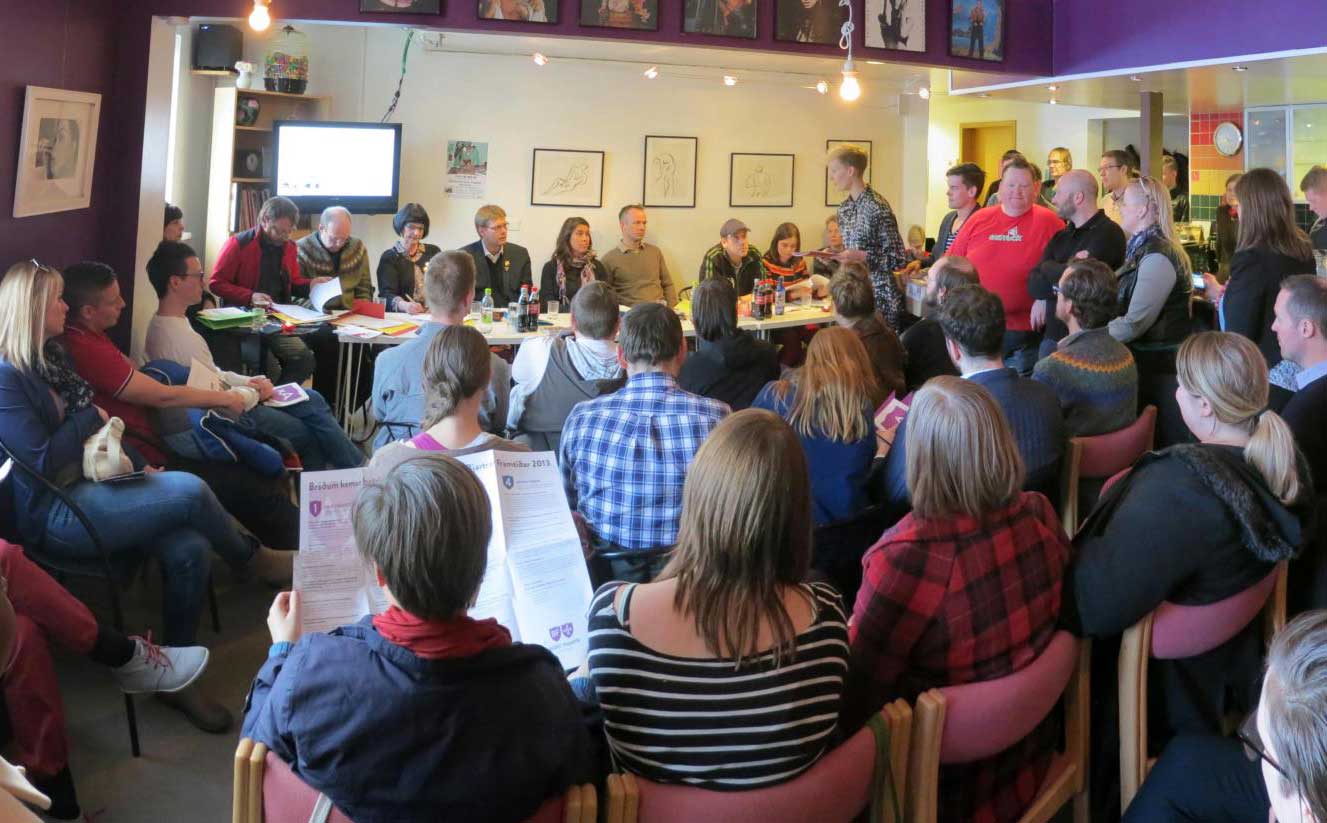
National elections for Parliament are coming up in about a week and according to recent polls a new government will replace the left wing government for four years lead by Mr.s Johanna Sigurdardottir, the world´s first gay prime minister. The National Queer Organization, Samtökin '78, invited political parties running for Parliament to share their thoughts, policies and ideas on LGBT issues at a very well sought meeting last week at the Queer Center. Prior to the meeting all parties had the opportunity to share their policies on LGBT related issues by answering a list of questions such as how they perceive current legislative and social status of LGBT people, if they are ready to support further research on lgbt issues, strengthen education and secure funding of the National Queer Organization which has suffered since the economy crashed in 2008.
When browsing through the answers from the responding parties the future outlook should be fairly good no matter who will win the elections. At least, when reading answers given, everyone seem rather happy and gay. All parties agree we´re in a good place and good things have been accomplished both in terms of legislative rights and general attitude. But if digging a little bit deeper some parties are just more specific than others on what needs to be addressed in the future and what needs to be done.
Adoption is the issue, rightfully, most of the wanna-be parliamentarians addressed. Despite the fact that same sex couples in Iceland can adopt they have very limited if any changes of doing so because no agreements are in place between Iceland (as a state) and the countries Icelandic couples are currently adopting from.
Fewer address other LGBT related issues such as gender identity and anti discrimination laws and actions or legal and social status of transgender people which has been in the spotlight for a relatively short time in Iceland.
Most parties have a very general approach on how to eliminate discrimination or address the above issues. When reading the answers given one can easily conclude that most parties see things best being resolved within the current legislative framework which is seen as "good enough" by most of them. That may be right but for progressive steps to be taken we have to be specific about what we´re talking about. Legislation in itself will not free us from doing so and hardly pave the way for full acceptance and integration.

